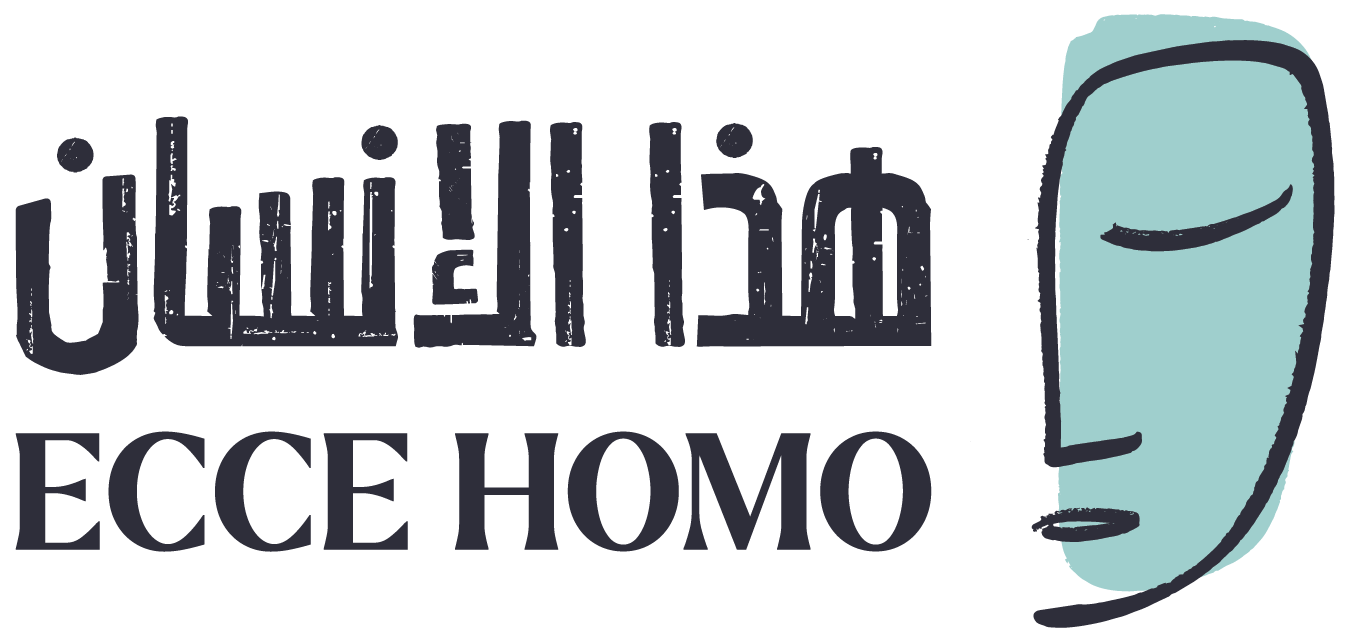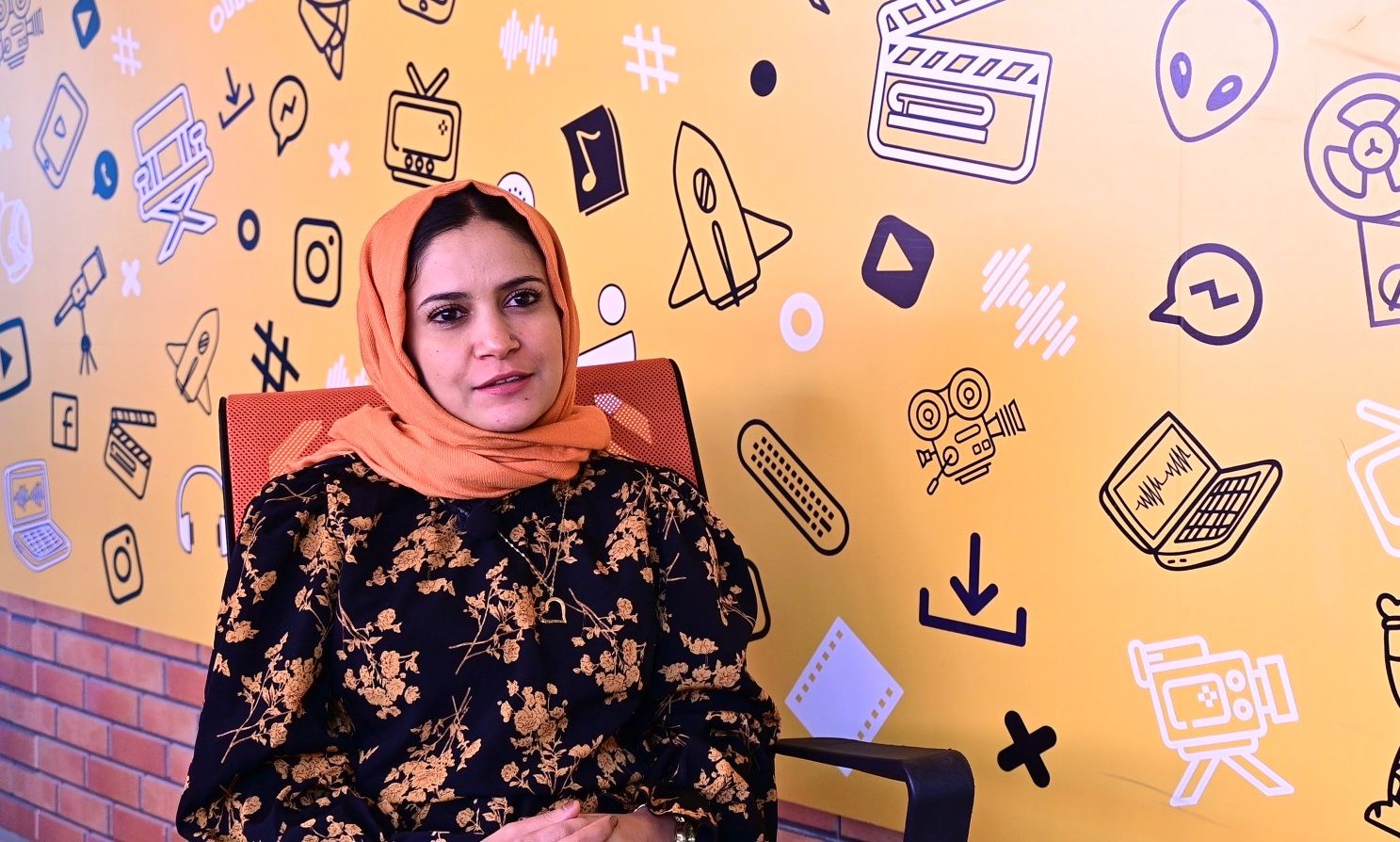
From Sana’a to Turkey: Yemen Remains Ilham’s Final Destination
Ilham was born around 34 years ago in the governorate of Raymah in western Yemen, not too far from the Red Sea. The area was known for its rugged terrain and the kindness of its people.
She receives visitors in her office located in Istanbul, within the building of the TV station where she works. Wearing an elegant traditional dress, smiling, and walking rapidly, she guides them through the building while introducing its different sections and uses.
A middle child in a family composed of 3 girls, 4 boys, and their parents, she completed her primary education in Sana’a. Ilham moved there as a young girl with her family, where she lived and studied until it was time to leave her homeland. This change was prompted by her father’s work in the Yemeni army.
Her school, Khalid Ben-Al-Walid, which she describes as “good”, was co-ed, a fact which was not very common at the time in Sana’a and beyond. Being her brother’s school as well added to her positivity because it facilitated her daily commute. In addition, she never felt as though she is in a completely foreign place. “My school gave me the opportunity to break the barrier of innate shyness”, as she was able to form cordial friendships with people from both genders at school, a step which later helped her greatly. She also shares her thoughts and says: “If God blesses me with children one day, I will make sure to enroll them in a co-ed school, so that they can reap its benefits like I did. My sisters, on the other hand, studied in an all-girls school, which affected them negatively later on.”
If God blesses me with children one day, I will make sure to enroll them in a co-ed school, so that they can reap its benefits like I did. My sisters, on the other hand, studied in an all-girls school, which affected them negatively later on.
Even as a child, Ilham was inclined towards literary subjects and not scientific ones which include mathematics, physics, and chemistry. Her dream, since middle school, was to specialize in media studies, a field that she spontaneously fell in love with as a child and an adolescent. Her passion for media was translated through her work in the school’s radio station and other similar activities.
She graduated highschool successfully, and it was time for her to attend university. Pursuing higher education was not positively received by her extended family. For instance, her maternal uncles voiced their refusal. They only allowed their daughters to attend school until the sixth grade. However, Ilham’s mother, who made a personal effort at an advanced age to overcome illiteracy and educate herself, refused to stand idly by. She supported her daughter and made sure, along with her husband, that Ilham completes her education in the specialty that she loves, regardless of her relatives’ position on the matter.
In the Faculty of Mass Communication at Sana’a University, there were some professors who had a prejudiced view of young women pursuing their education and seeking to find a job. On the other hand, there were also some who were encouraging, influential, and inspirational as they helped her push her university experience forward. Ilham took general media courses in the first two years, then specialized in radio and television.
Despite the adequate quality of the curricula, Ilham did not deny the weakness in the practical aspect of her education, especially in a discipline that depends on application as much as theory. She was aware that this might lead her to graduate with a degree in theoretical sciences without any practical knowledge worthy of a media studies graduate. Prompted by this dilemma, she started volunteering, since her first years at university, in local newspapers to acquire experience. She carried out reports and surveys under the supervision of veteran journalists, while attending all available courses and seminars provided by Arab stations that were known for their advanced media level.
She graduated at the age of 23, but she looked much younger at the time. Because she loved working in media, she applied for a job as a reporter in the only television station at the time, a government-run channel, only to receive an irritating and direct answer: “Your face is not exactly screen-material. It looks way too childish for television.” Following this response, the newly-graduated young woman decided to change her job orientation.
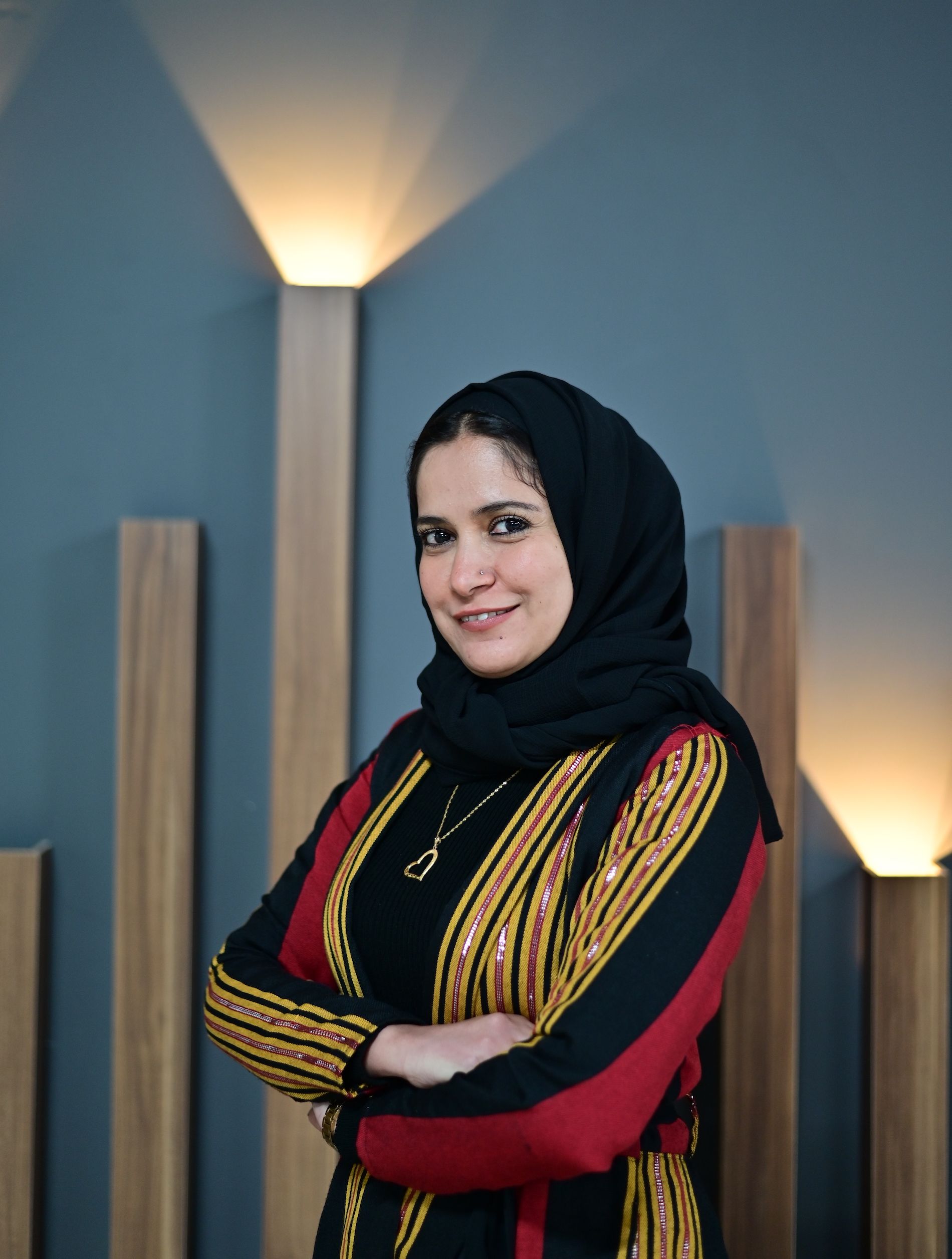
Ilham tried, for the last time, to work in a newspaper or radio station, but her desire to remain within her field of study did not allow her to accept a work environment that she deemed as unprofessional and psychologically uncomfortable – at least not in the way that she would like it to be. Consequently, she found her opportunity in civil society organizations.
Her first jobs were in the field of media: she worked as a media coordinator and editor, while she gradually entered the field of development projects as well as training and rehabilitation courses. She also did not fail to provide her services as an accountant and secretary – when and where it was needed – to maintain her financial independence and provide some support for her family. “All of those jobs helped me strengthen my personality and gain a much-needed experience.”
Although she did not participate in its events, Ilham considers that the February 11th Revolution was a turning point in history. She also reflects that she was contributing to her own revolution by working to support and empower young people. Despite all of that, she followed the revolution’s youth closely and wrote about them as they were disseminating ideas that she also believed in.
Out of the Revolution, a new television station was born under the name of “Yemen Shabab”. Ilham went to them to request sponsorship for one of the projects she was working on within the organization at the time. The process required weeks of work and coordination, which ended in the program manager at the station offering Ilham a job after he learned that she was a media graduate. He suggested to help her prepare and produce a new youth program.
She reviewed the program’s outline and expressed insights and observations which they took into consideration. Then, she began her part-time job as a producer twice per week, while retaining her previous position in the organization. What distinguished her is the fact that she was always keen on expressing her different ideological and political orientations wherever she worked.
With time, she felt that she had reached the right place, so she left the organization to devote her time to working in “Yemen Shabab” station, especially that she felt comfortable with the work atmosphere and the amount of trust that was given to her.
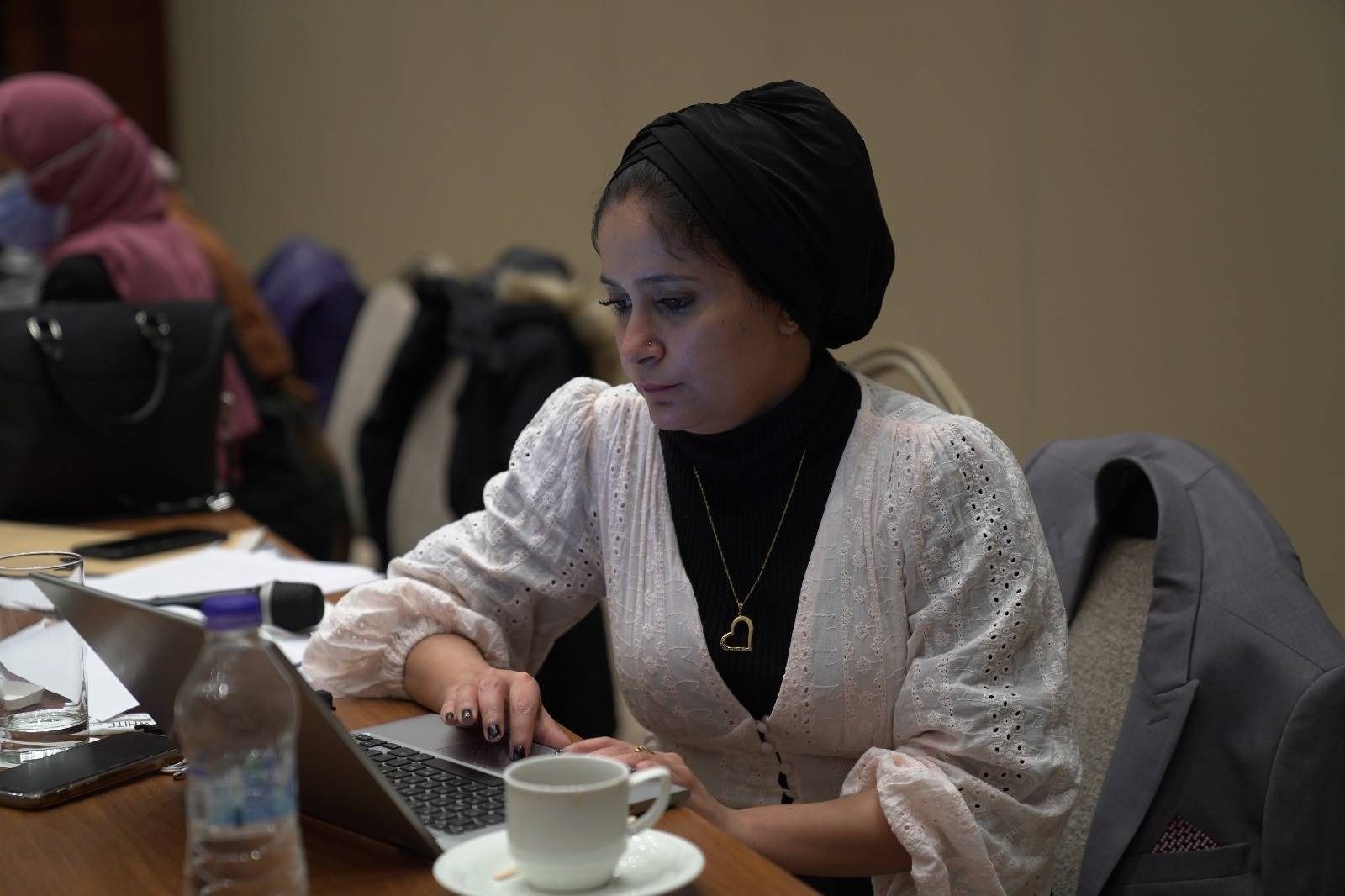
In 2015, the Houthi’s group coup and subsequent control of the city led to the closure of the channel, which moved with a small number of its employees to Istanbul, leaving Ilham without work for 6 months. She then decided to invest her efforts in charity work, alongside her friend, with the support of the latter’s father, a businessman and his companions. They distributed food baskets and relief aid to families whose food security and livelihood stability were threatened because of the recurring conditions in Yemen.
In addition to her work in the humanitarian field, Ilham did not cease seeking opportunities elsewhere until one of the Yemeni stations in Turkey offered her a job under the condition of being able to move there on her own.
Nadia, Ilham’s friend who is involved in the Revolution and who has many acquaintances and contacts, supported the young woman and helped her secure a visa to enter Turkey. After that, she immediately set off from Sana’a to Ma’reb through a smuggling port. She disguised herself and wore a Niqab. The fact that her passport stated her profession as a journalist and had a Turkish Visa stamp might mean to some that she belonged to a certain religious or political party, which could not be further from the truth. It did, however, offer her the necessary protection to move forward.
After a tiresome journey, she arrived at the border with Saudi Arabia, only to discover that a new document was required: a visa from the Yemeni government that she did not possess. Hence, she waited for 12 hours in the desert, in the middle of nowhere. There was only the border building there and nothing else: no restaurant, no bathroom, and no place to rest or sleep.
Despite constant communication with her friends who were trying to help, Ilham was beginning to feel desperate and was thinking of going back. Luckily for her, the envoy of the Yemeni presidency arrived at the border by chance. She explained her situation, field of work, and purpose of travels to the group who was sympathetic with her while examining her passport. She then remembered her mother’s prayers: “May God send you good people along the way, my daughter.” The voice of the presidential representative interrupted her thoughts, “Your name does sound familiar.” Several other questions followed: “Where do you live? Do you know so-and-so?” He then discovered that Ilham’s family are this uncle’s neighbours. He used to spend some time in his house during his years at university.
They waited an additional 4 hours for the Saudi officers to switch their shifts. The delegate then accompanied her and sponsored her to enter Saudi Arabia, where a plethora of other difficulties awaited the young woman who was traveling for the first time.
She could not find a hotel to stay in without a male chaperone (Mahram) nor book a bus ticket to Riyadh. Ilham was also stopped, with her friend residing in Riyadh, by a patrol of the Commission for the Promotion of Virtue and the Prevention of Vice because of the belt on her Abaya. They considered that it was too tight, showing all of the details of her physique. When they asked for her passport, she feared that they would confiscate it, and that she would not be able to continue her trip to Turkey, disappointing by that the presidential representative, who ensured the authorities that she was just passing by and was not aiming to stay in Saudi Arabia.
Fortunately for her, the situation passed without complications. Ilham arrived to Istanbul, only to surprise the channel, whose management did not understand how this petite young woman was able to go through such an arduous journey to reach a place where she can achieve her professional ambitions.
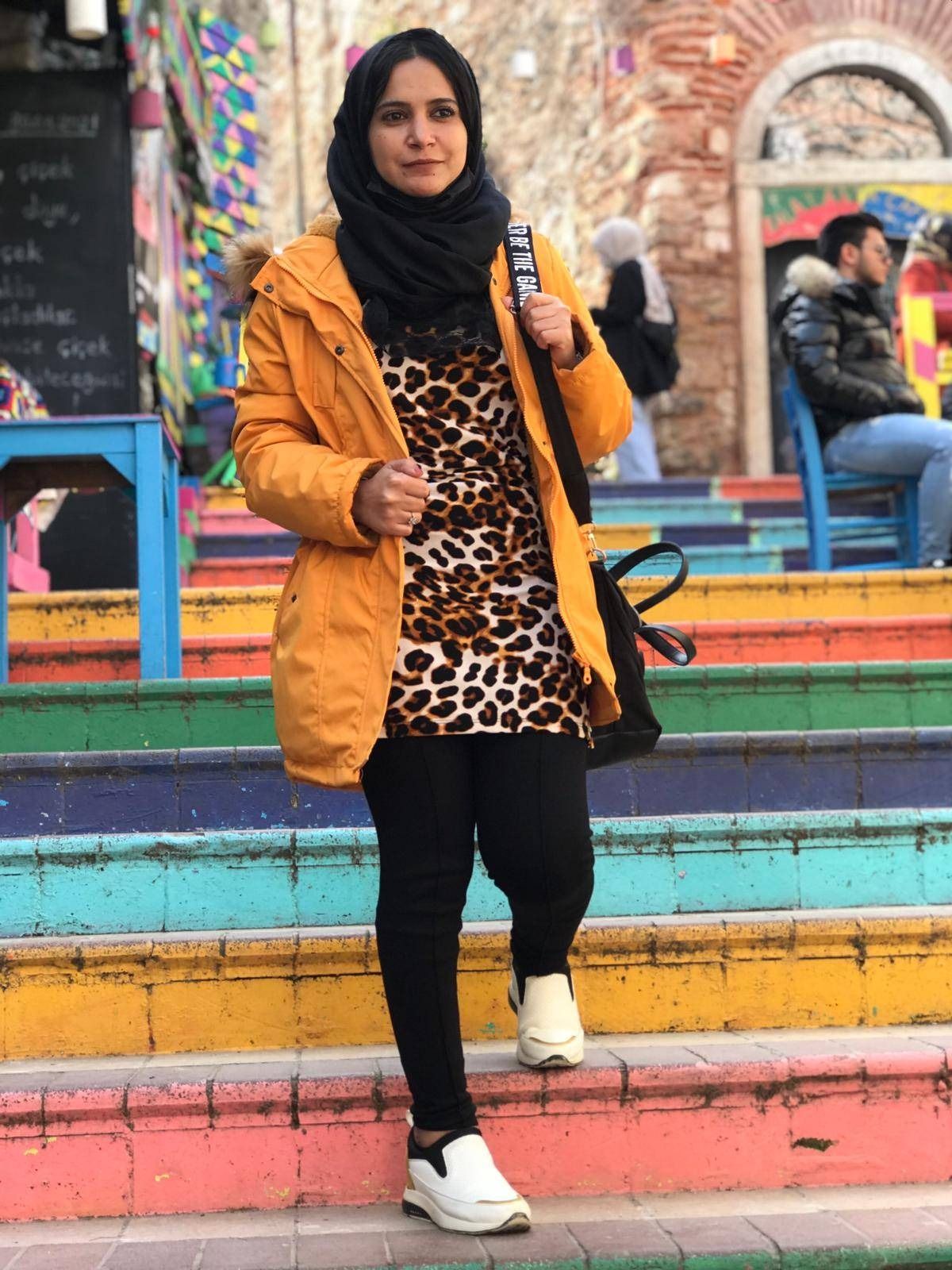
She worked there for 5 years then moved to another station where she stayed for a year before resigning because of her objections to some of the station’s positions. She left even before securing an alternative job. It was then that she received an offer from “Yemen Shabab”, the first station she worked at back home. She returned to her initial haven and continued her journey there until today.
Furthermore, Ilham is an active member in the “Women for Yemen” network, a group of 9 Yemeni women organizations that fight for peace in Yemen from abroad. They also advocate for women’s rights and encourage their participation in political processes and negotiations, an activity that is also supported by the United Nations.
Moreover, she assumes the role of media and public relations officer to the Yemeni community in Turkey, which plays a role that is almost parallel to the role of the country’s embassy there, which is currently non-functional due to political reasons. The community contributes to solving problems of Yemeni residents, helps them attend needed courses, and organizes meeting and trips, as a licensed association in Turkey.
Ilham groups this community, which includes around 50,000 Yemenis, into three main categories: businessmen with venture capital, families of Yemenis working as middle-managers in Saudi Arabia, and students.
There are no official statistics on the number of Yemenis outside Yemen, but there are unofficial estimates that their numbers in East Asia, the Gulf, Europe, America, and Africa are estimated at 6 million, while the Ministry of Foreign Affairs and Expatriates in the Yemeni government states that the number of Yemenis outside the country exceeds 7 million, as the numbers have doubled during the last war.
It is not common for Yemenis abroad to be treated as refugees. They are usually considered as immigrants or temporary residents; as businessmen, merchants, employees, and students. While their common nationality and suffering joins them in the countries in which they live, both the war and political division that the country is witnessing between supporters of the government and the Houthis is also reflected in Yemeni communities abroad, which are also divided in the same way.
Ilham visited her family in disguise once in the last 7 years, which she considers as tiring and stressful on the psychological level. However, she still holds the hope of returning, “I am not a refugee, I am an immigrant, just for a while. Even if I was given the opportunity to move to Europe, it will remain a temporary place. We have hope that our country will stand back on its feet, and that I will return to it one day. Neither Turkey nor Europe is my final destination, Yemen is.”
I am not a refugee, I am an immigrant, just for a while. Even if I was given the opportunity to move to Europe, it will remain a temporary place. We have hope that our country will stand back on its feet, and that I will return to it one day. Neither Turkey nor Europe is my final destination, Yemen is
